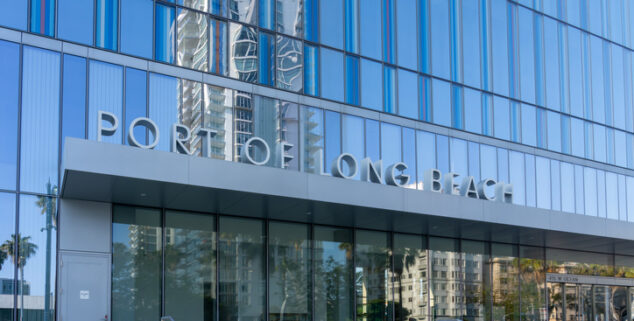Opinion
Protect the nation’s largest port complex from political overreach
 Port of Long Beach. Image by JHVEPhoto.
Port of Long Beach. Image by JHVEPhoto. Capitol Weekly welcomes opinions on California public policy or politics. Please read our guidelines for opinion pieces before submitting an Op-Ed.
OPINION – A state bill that passed easily through California’s deep-blue legislature would undermine two of the state’s most critical economic engines, sacrificing growth and competitiveness under the banner of “job protection.”
The Port of Los Angeles and Port of Long Beach are indispensable, handling about 40% of U.S. containerized imports. This cargo supported 3.5 million jobs in the state of California, and $851 billion in economic activity in 2024—more than 20 percent of California’s GDP, according to research conducted by Martin Associates.
The ports are also under pressure from the South Coast Air Quality Management District (SCAQMD) to slash emissions, which they are striving to do through modern, zero-emission, electrified cargo-handling systems.
Now state lawmakers want to throw a wrench in the works.
SB 34, on its way to Governor Gavin Newsom’s desk, could ban any current or future “automated” or “remote-operated” technology that plugs into the power grid. The bill’s sweeping and vague terminology could apply to virtually every modernization project imaginable on the docks and throughout the port complex. That includes automated systems already in use, like stacking cranes and autonomous guided vehicles. Even technology like drones used for aerial inspections and construction monitoring could be caught in the bill’s dragnet.
The bill’s backers sold SB 34 as a job protector. Yet in reality, since automation was introduced in the West Coast collective bargaining agreement, longshore employment and wages have risen. At the Ports of L.A. and Long Beach, total longshore work hours are up by more than 10% since employers earned the right to automate. Full-time International Longshore and Warehouse Union (ILWU) workers on the West Coast now average $225,000 a year; clerks earn $252,000 and foremen earn nearly $360,000.
Automation has boosted productivity, cut truck turnaround times, and attracted new cargo. Choking off innovation threatens to push that cargo, and those jobs, elsewhere. In fact, it already has. SB 34, if allowed to become law, would cement the state’s reputation for logistical dysfunction—and accelerate the exodus of cargo, jobs, and tax revenue.
Beyond the docks, truck drivers, warehouse workers, logistics firms, retailers, and thousands of small businesses depend on the ports’ vitality. Billions of dollars in major terminal upgrades now in the planning stages – supporting thousands of high-paying union construction jobs – will almost certainly be canceled if this bill becomes law.
The stakes couldn’t be clearer. A 2024 analysis by Martin Associates warns that if the San Pedro Bay Port Complex continues to lose its discretionary cargo and is relegated to serving only Southern California, the fallout would be devastating: the study found the loss would erase more than 55,000 direct, induced, and indirect jobs, slash $15.6 billion in annual business revenue, and wipe out more than $730 million in yearly state and local tax revenue.
Our research also found that every one-point drop in containerized cargo market share equates to the loss of another 5,300 direct, induced and indirect jobs and $1.5 billion in statewide economic output. These aren’t abstract numbers—they represent the truckers, warehouse workers, and logistics operators who keep America’s supply chains running.
Governor Gavin Newsom likes to boast about California’s economic prowess. The last thing California needs is a law that freezes its leading maritime gateways in a pre-digital era. By vetoing this bill, Gov. Newsom can help California keep its competitive edge, meet its climate mandates, and sustain middle-class jobs – all while demonstrating that California has the wherewithal to make rational business decisions.
John C. Martin, PhD is the founder of Martin Associates, a leading international maritime consulting firm conducting port related research since 1986.
Want to see more stories like this? Sign up for The Roundup, the free daily newsletter about California politics from the editors of Capitol Weekly. Stay up to date on the news you need to know.
Sign up below, then look for a confirmation email in your inbox.

Leave a Reply